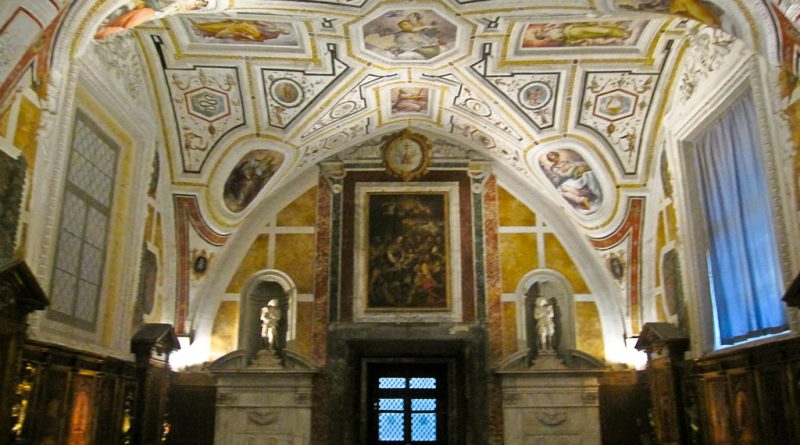ParteNeapolis: an example of how to strengthen the community through culture and art.
The Italian cooperative ParteNeapolis was created in Naples in 2000 through the European project “Impara l’Arte”, or “learn the art” in English, an initiative carried out by the cooperative group CGM, the biggest consortium of social cooperatives in Italy, in collaboration with the Italian Ministry of Internal Affairs.
The project aimed at the establishment of social cooperatives that could offer job opportunities to young people in the field of tourism, and enhance the cultural heritage in the territories of reference, too often, not well promoted or even abandoned.
In particular, the ParteNeapolis cooperative was launched as a cultural and social project in the area of tourism to manage the “Sala degli Arredi Sacri” (also called “Sala del Tesoro”) that can be found in the Sacristy of the Basilica of San Domenico Maggiore in Naples, known for being the repository for the reliquaries containing the hearts of Charles II of Anjou, Alphonsus the Magnanimous, and Ferdinand of Aragon.
Today, ParteNapolis manages Sant’Anna dei Lombardi, a monumental church and also a unique example of Tuscan Renaissance in Naples. Over the years, the cooperative has specialized in the provision of services in the areas of tourism and culture, improving its offer of touristic services tailored to the needs and desires of people.
ParteNeapolis currently has 6 members, 4 of which are worker members. It offers job opportunities to people who are unlikely to find employment opportunities in the Neapolitan territory. In particular, it employees young people who have made art related study as well as self-employed tourist guides a profession which seems to be mainly women-oriented in Italy. Indeed, despite being a major tourist destination, Naples is one of the poorest cities in Europe with an unemployment rate of about 28 percent[1], but, in the opinion of Mario Scignano, President of ParteNaepolis, the situation can be improved through the search for quality and relational social capital within the community and here social cooperatives come into play.
”The advantage of the cooperative model is that everyone feels an integral and active part of a common project generating a trust, that returned to the territory, strengthen the whole community” says Scignano.
Indeed, in Italy, social cooperatives are an important actor in the provision of services of general interest to the community. The provision of tourism and culture services through the labour integration of disadvantaged people is a specific contribution of social cooperatives, when it come to make responsible tourism fully embedded in its community.
The cooperative has also developed, in collaboration with Prodoos Consortium, a consortium of social cooperatives in Naples engaged in the provision of services in the social, health and education sectors and in the job placement of disadvantaged people, several projects aimed at providing social services to disadvantaged people and their families. To this end, ParteNeapolis manages, in parallel to the cultural and the touristic activities, a multi-purpose center, called Òikos, for people with disabilities, facilitating the social inclusion of those people through work.
ParteNeapolis has initiated a process of internal reorganization to acquire the legal status of so called “B type” social cooperative, that, according to Italian legislation, aims at the empowerment of disadvantaged people by integrating them as worker and, whenever possible, members of the cooperative through the status of worker-member.
Did you know? This year the participants of the International School of Social Cooperative will visit the monumental church Sant’Anna dei Lombardi managed by the cooperative parteNapolis. The school will take place from 24 to 27 of October 2019 in Naples, Italy. Have a look at the programme of the school here, registrations are now open!
[1] https://www.istat.it/it/condizioni-economiche-famiglie

